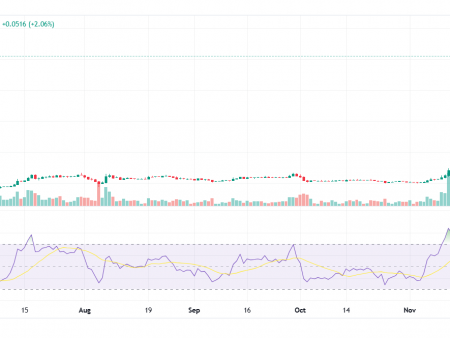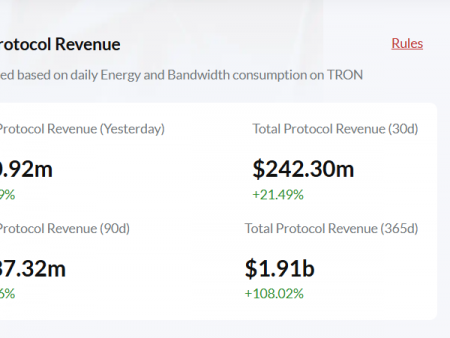This article was published in Bitcoin Magazine. “The Bisection Problem.” Click Here to get your copy.
Every morning at 6 a.m. in Punxsutawney, Pennsylvania, cynical weatherman Phil Connors wakes up to relive the same day over and over again. Stuck in a time loop, Connors tries everything to get his life back on track – he gets stabbed, shot, burned, frozen, and electrocuted, only to wake up again the next day as if nothing happened. Connors quickly comes to the only plausible conclusion: he must be a god.
Thinking of ourselves as invincible has never been a particularly smart strategy, in war or otherwise. If we believe in cosmologies from Nietzsche to Hinduism, time is a loop, and there is a finite realm of possibilities that repeat themselves endlessly – the only thing we can do is change how we react. If we don’t learn from our mistakes, we are doomed to experience the same thing over and over again.
While we often pride ourselves on our exceptional intelligence – I found Bitcoin early, I must be very smart – it seems that learning from mistakes is difficult even for the most seasoned “Bitcoiners”. Public discourse seems to have shifted from discussing technological problems and limitations to after-work Deutsche Bank chats – anything is possible, we just need profits to stay on track.
When Bitcoin was first debated in the German parliament in 2014, “experts” emphasized how easily Bitcoin payments could be de-anonymized using network analysis, raising the risk that widespread adoption of Bitcoin would lead to total financial surveillance. Today, ten years later, when Bitcoin returned to the German parliament, the “experts” have been exchanged for influential figures proposing Bitcoin as an alternative to CBDC. The current “Bitcoin political debate” can’t help but remind us of Bart Simpson running around in circles, hitting his head with a frying pan.
As we continue to move closer to the opportunist echo chamber, we have successfully replaced academic debate with support groups. Everything will be fine if you are willing to get your tits out. “We are winning!” has long been a common meme — between ETF approval, stablecoin issuance, and eventual nation-state adoption, we are so confident in Bitcoin’s success that we seem incapable of realizing that this is how you lose. Hubris precedes most failures, and its exploitation was always intended. By sowing delusions of invincibility, even the most prepared commander will lead his sheep to the slaughter.

Groundhog Day
Once upon a time, in a galaxy far, far away, we hooked up our computers to landlines to access the three great Ws. For those of us who didn’t live alone, this practice was often doomed to a fair amount of chaos – Get away from the computer, Mom’s waiting for the phone to ring.
So, we can all agree that it sucks. But due to the lack of technological advances and the availability of wireless connectivity over a distance (think of your favorite mesh network), it was the most convenient option we had. The only problem: it led to a monopoly on network access points held by telecom providers. Fast forward 20 years, and we now know that telecom providers monitor, analyze, and report everything we do online to government agencies under the guise of national security. The technology that was thought to be invincible for the liberation of the people has quickly become their greatest enemy.

Now, we can’t talk about the rise (and fall) of peer-to-peer technology without mentioning Linkin Park. Linkin Park’s music, then Hybrid Theory, was widely distributed on the first P2P music sharing network, Napster. Downloaded from other people’s computers, Linkin Park’s music was completely free. Their first studio album, Hybrid Theory, remains one of the top five best-selling albums in the world, with 15 million copies sold in its first three weeks alone.
Napster was a true global internet revolution – and the music industry was furious. While people were happily infecting their devices with potential computer AIDS, bands, rappers and songwriters like Arctic Monkeys, Dispatch and EMINEM were building fan bases before they even released their first big records, and the music community had nothing to do with it. When Metallica sued the P2P platform for copyright infringement, clearly unhappy that their cult status and subsequent profits were being threatened, peer-to-peer music file sharing didn’t die, but quickly took on more corporate-friendly formats – from buying music on iTunes to streaming music on Spotify.
While it seemed unimaginable to put a technology like Napster back in the box, convenience is king again. Today, most listeners don’t own the music they listen to, but subscribe to corporate databases from which no artist, label, or producer profits. Instead, the music-sharing industry’s biggest winner has once again been surveillance. Just last week, when Spotify updated its cookie policy, a push notification informed EU users which 695 data brokers would have access to their information. Downloading files like ClapYourHandsSayYeah.mp3.exe (RIP) was clearly a risky proposition, but the risks of surveillance capitalism extend far beyond a broken computer.
Essentially, the same thing happened with search engines. Going online in the early days of the World Wide Web was like going into the middle of Yellowstone National Park without a map. There were thousands of places to go, but you had to know where they were. With vast collections of links, platforms like Yahoo, AskJeeves, or Google offered enormous value to those who weren’t as internet-savvy. Instead of asking your peers where something cool was on the web, you just asked Google. But by moving away from word-of-mouth formats, we’ve arrived at what’s now called the Great Enshittification. The first few links are paid affiliate sites, and the ones that follow are those who’ve figured out how to effectively replicate Google’s SEO formats, all packaged and tailored to your perceived needs, of course. Today, Google is one of the most valuable surveillance companies in the world. Software intended to help liberalize free information has, in fact, become a tool of censorship.
Time and again, thinking that “technology has won” only exacerbates its decline. We choose what is convenient now, only to stab ourselves in the back later. And before you know it, BING! It’s the belly button whoosh at the school talent show when the weatherman strikes again. To put it bluntly: we’re screwed.
These are filters, dumbass.
In today’s pop culture discourse on Bitcoin, ignorance is rampant. Lightning works until it doesn’t, let’s spend millions to put a dollar on Bitcoin; It’s called priorities, baby, look it up.
When Ordinals hit Bitcoin — think of them however you want — we suddenly realized we were in trouble. In the global south, people quickly lost the ability to transact without custodial help. All those people you told DCA about suddenly found themselves facing exorbitant transaction fees and unable to move their funds. For those who value their privacy even on small spends, participating in coinjoin rounds became prohibitively expensive. Everywhere we look, we still have a scaling problem. This problem doesn’t exist because of Ordinals. It exists because we were so confident of victory that we lost the thread holding our ignorance in check.
For the past four years, most have been more concerned with pushing their own narrative — everything is fine, and Bitcoin is the best currency on earth — than confronting inconvenient truths. Then we proceeded to respond with an inordinate degree of myopia: It’s the filters, dumbass.
Filtering Ordinals transactions is a short-term solution to a long-term problem. Sure, locking arbitrary data on the blockchain will certainly lower fees, but if you want global adoption of Bitcoin, you’re not doing yourself any favors by offering selective solutions to systemic problems. The point is, it’s easy to get mad at JPEGs. It’s not easy to take on issues that challenge the “Bitcoin greatness” that some seem to have turned into their identity. With every tweet that claims Bitcoin will bring world peace — either through sheer magic, or what Wall Street losers turned Bitcoin economists call some form of reverse game theory — a part of the system dies.
We don’t want your hopium; we want real solutions to real world problems. That includes laying down crack and talking about uncomfortable things: We’re not winning – we’re doing the opposite, because our “long-term preferences” extend roughly to our investment portfolios. You can kill Bitcoin. And it’s easier than you think.

Embrace, Expand, Extinguish
Over the past few years, the debate over Bitcoin’s “victory” has played out much the same way. Senators embrace Bitcoin: See, we’re winning. BlackRock embraces Bitcoin: See, we’re winning. First they ignore you, then they laugh at you, then they realize all you need is a pat on the back before the cop comes to take away your toys. The laughter hasn’t stopped, it’s just happening behind your back.
The most likely death of Bitcoin will happen not so much in words, but in its full integration, at a time when the technology is simply not ready for “mass adoption” yet – just as we killed all the peer-to-peer technologies that came before it. The death of Bitcoin is not the death of the technology, but the death of its usability.
At the heart of Bitcoin’s death, at least at its core, is still the scaling debate. When Gigablocks was first proposed, it seemed pretty obvious that a blockchain that takes 10 years to sync would lack decentralization. The Lightning Network came along and seemed to solve all our problems: off-chain scaling, on-chain security. Clever. Except we can only fit about 5,000 channel opening and closing transactions within a block — hardly enough to allow 8 billion people to use Bitcoin without custodial purposes.
Unfortunately, that hasn’t stopped the powerful — or anyone, really — from proclaiming their Our Lady of Despair; Bitcoin scaling is obviously a problem for future me. The excitement of finally being able to sit at the corporate dinner table and smugly utter the obligatory “I told you so” was too high. Putting the non-believers in their place simply had to come first; if Bitcoin doesn’t exist to feed our fragile egos and pad our pathetic little bank accounts, what was the point, really? Freedom, Carajo! Welcome to your unwitting conversion to the Church of Satoshi’s Witnesses, where we give speeches about saving the world from tyranny more often than Biden changes diapers.
Here we are. It’s been six years since we bought our first stickers from the Blockstream store — the only thing you could buy when the first Lightning implementations launched, besides beer — and we’re still struggling. Instead of encouraging broad discussions around covenant proposals that actually come with real trade-offs and risks, we’re busy labeling those who aren’t willing to ossify as spies, when ossification at this point in Bitcoin would surely be the surest way to kill it.
Someday in the near future, we will wish ourselves back to the days of a few hundred vBytes as fees. By then, we will have no choice but to use Bitcoin as storage. Say goodbye to freedom’s money: Bitcoin as we know it will die if we don’t stop making the same mistakes.
























